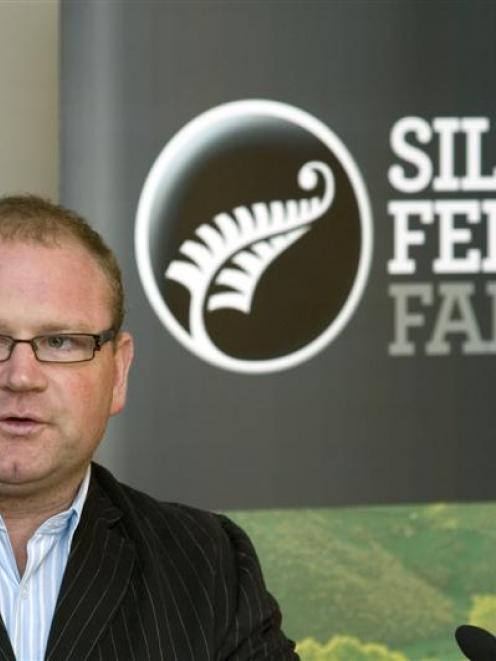
"The whole thing's a bloody disaster, frankly, and it's no surprise why it gets the outcomes that it does," he said.
A meat industry mega-merger proposed by Southland-based co-operative processor Alliance Group fell over in April, only two months after it was launched, due to failure to reach agreement with Dunedin-based rival co-operative Silver Fern Farms.
Mr Norgate sees it as an opportunity lost.
"That needed to happen. It's not about taking sides; it's about recognising that, conceptually, it was the right thing . . . and we've got to find another way of making it happen."
In March, PGG Wrightson sent a letter to its clients to try to get the quieter elements of the industry more engaged in the debate over the proposed merger.
In response, Mr Norgate received more than 500 calls and letters.
After the proposed merger imploded amid recrimination, people pleaded for him to get involved. They have got their wish.
"It's got to change and it's got to change fast, and one way or the other we're going to help it to," Mr Norgate said.
PGG Wrightson's livestock business is worth the thick end of $200 million and, because it receives commissions, it is highly dependent on the market price.
The company was not going to sit back and watch the industry go through another season like the previous one, Mr Norgate said.
"We won't rest until we see the industry change and, if we do have to be prepared to get directly involved ourselves to facilitate that, we're probably at the point where we would."
The reason a farmer co-operative was formed, he pointed out, was to make sure farmers could get their animals processed and received a fair price for them.
"But then the silly buggers go and set up another one to compete with it," Mr Norgate said.
"You've got to ask the question - why do farmers need two co-operatives?"
PGG Wrightson had spent a lot of time trying to get the key protagonists to move.
"At the moment, the key protagonists are the two co-ops, because if you can't get them together, you can't blame the other guys for not being interested."
Lamb should be positioned with an ethical marketing platform at the top end of the high-value protein market, he said.
However, Mr Norgate saw a danger that rising meat prices could reduce the urgency for change.
Farmers may see an additional $15 a lamb this season.
"Fifteen bucks doesn't save the industry and, if it just stops people changing, then actually it's the old slow death again."
There were reasons why meat had struggled, he said.
When Britain joined the European Union, the dairy industry was forced to find other markets but lamb retained a relatively high quota in Europe and there was not the same sort of pressure to change.
"So there's an overdependence on that, and because there's a differential price that gets competed away, so the focus is on volume into that quota market because that's the easy way to maximise your share of the pie," he said.
"That doesn't help increase the value that's generated out of the market."
Farmers taking their profits at the farm gate were trying to get the best price for their animals but were driving short-term behaviour which resulted in inadequate returns to processors and a focus on procurement rather than adding value.
"It's because they've been taking their profit at the farm gate that they've created a significant underinvestment in the industry," Mr Norgate said.
"You don't actually make a profit until somebody pays at the other end of the value chain."
Meat companies driven by the need to recover fixed costs needed to fill plants and would take various shapes, sizes and breeds and try to create a homogenous product for the consumer.
"Well, that just simply doesn't work."
Mr Norgate envisaged a system which would supply a retailer with a specific breed and a guaranteed consistent quality.
Processor Silver Fern Farms had made no bones about calling on farmers to look beyond the farm gate, to customers in the supermarkets, and to get farmers to agree on long-term supply volumes, which would help the co-operative plan its operations and marketing better.
Similarly, Mr Norgate said the product could not be fixed once it was in the factory, so the supply chain had to be integrated right back on to the farm. - Owen Hembry












